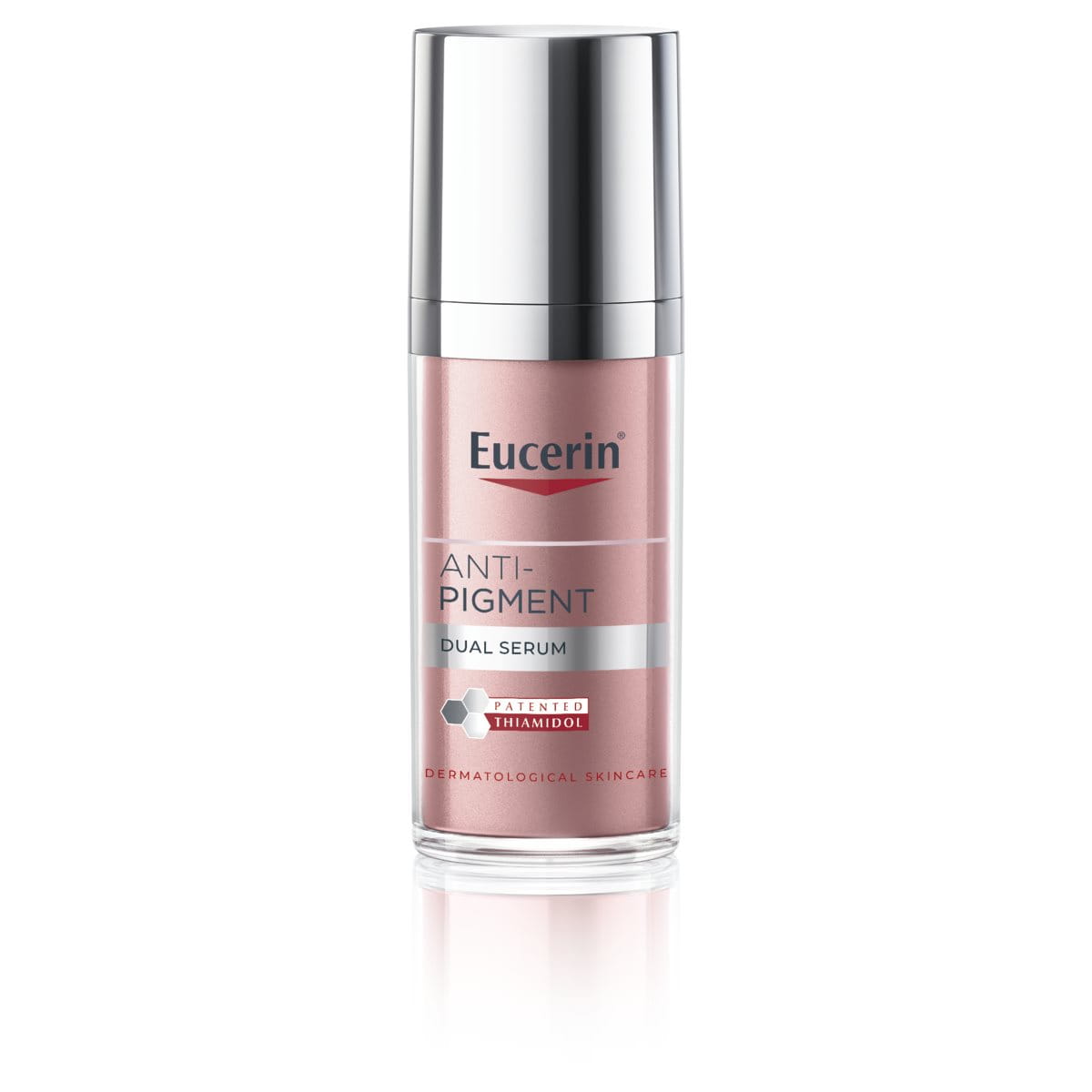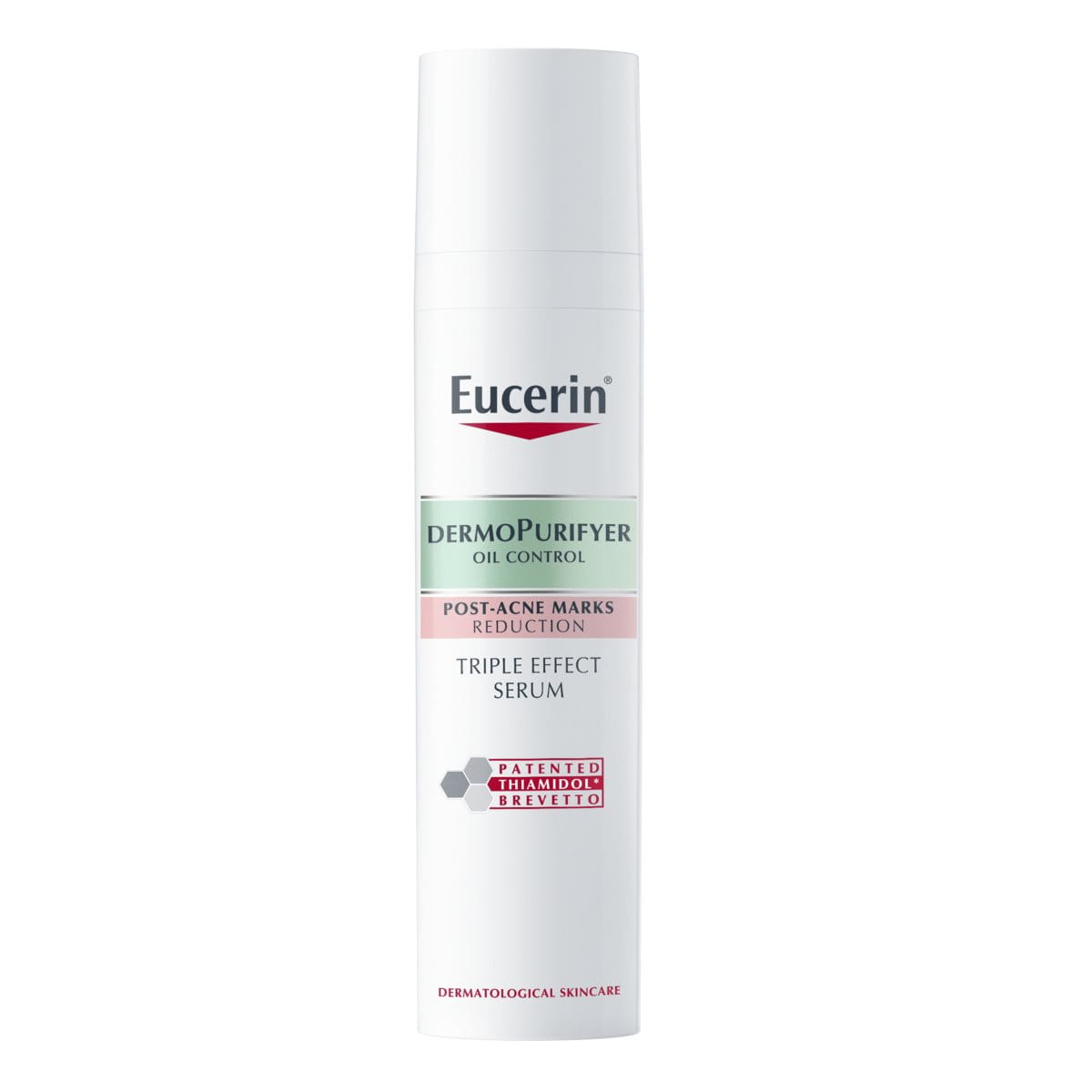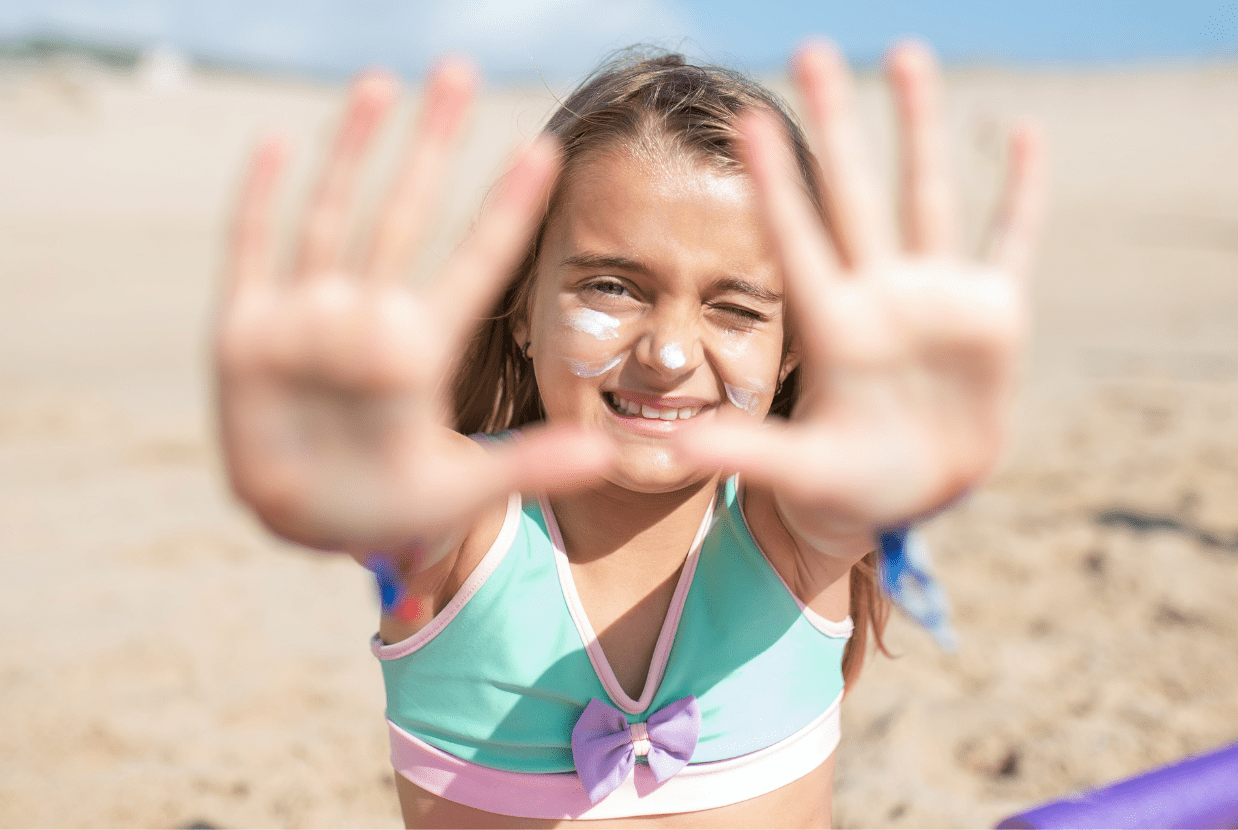Understanding the meaning of SPF will ensure you know how best to protect your skin from the sun's UVA and UVB rays. When choosing an SPF, consider your skin type, the amount of time you'll be in the sun for and its intensity.
In this article we’ll help you find the right sunscreen to use for your skin’s needs, explain what SPF means and how long sunscreen lasts.
What is SPF?
SPF stands for sun protection factor. The higher the SPF you use, the better your skin is protected as the products contain more filters. Sunscreens are available in four different levels of protection:
- low (SPF 6-10)
- medium (SPF 15-25)
- high (SPF 30-50)
- very high (SPF 50+)
Eucerin Sun products are available in a range of medium, high and very high SPFs.
UVA causes skin ageing, while UVB is mostly responsible for sunburn, but both UVA and UVB can cause skin cancer.
How are SPF numbers determined?
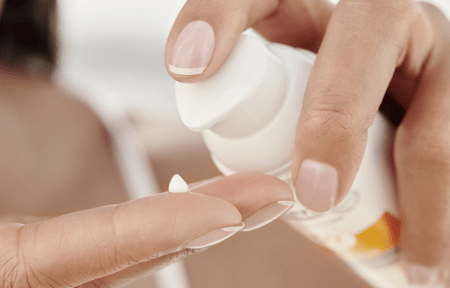
SPF measures how much UV radiation is required to cause sunburn when using sunscreen, relative to the amount needed to produce sunburn on unprotected skin. For example, using SPF 30 would ideally take you 30 times longer to burn than if you hadn't applied any sunscreen.
An SPF of 30 or higher protects you from around 97% of UVA/UVB rays, while an SPF 50+ only allows about 2% of rays through. Sun cream should be part of your daily routine throughout the year, not just in the summer.
What SPF should I use?
Eucerin Sun products are all clinically and dermatologically-proven to be both highly effective and well tolerated by sensitive skin. Advanced Spectral Technology combines UVA/UVB filters for very high UV protection.
For most skin types we'd recommend our SPF 50+ sun products, and our superior range contains active ingredients for specific conditions or concerns. Eucerin sun cream features colour-coded labels to help you find the right SPF to use.
These advanced facial sunscreens are specifically designed for daily use, and at 100ml the travel-friendly sizes are perfect if you’re going on holiday.
Does sunscreen expire?
Though you should wear SPF all year round, some of us will only remember to use it when the sun comes out. If you're searching for an old sun cream you haven't used in a while, you may be wondering if there’s an expiry date on sunscreen.
Most sunscreens will have a 36 month expiry date, with a ‘period after opening’ also shown on the packaging. This is usually 12 months and reflects the overall quality of the product (microbiological and physical-chemical stability, odour and colour).
How long does sunscreen last once opened?
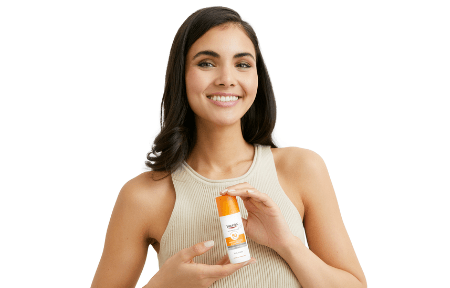
This depends on how the product has been stored. UV filters will remain stable over the whole shelf life, unless the product has been exposed to direct sunlight, extreme heat or bacteria over a long period of time.
If the sunscreen has degraded it will offer less protection and should be replaced. Check how the product looks and feels. The UV filters are likely to be ineffective if you notice product discolouration, a watery texture or a different smell to usual.
The sun is at its strongest in the summer, at high altitudes and when you are closest to the equator. However sunscreen should still be applied in winter, because the ozone layer is thinner in this season so your skin is more susceptible to UV damage, and SPF wears off faster in the colder months.
Our brand values

We deliver a holistic dermo-cosmetic approach to protect your skin, keep it healthy and radiant.

For over 100 years, we have dedicated ourselves to researching and innovating in the field of skin science. We believe in creating active ingredients and soothing formulas with high tolerability that work to help you live your life better each day.

We work together with leading dermatologist and pharmacist partners around the world to create innovative and effective skincare products they can trust and recommend.
